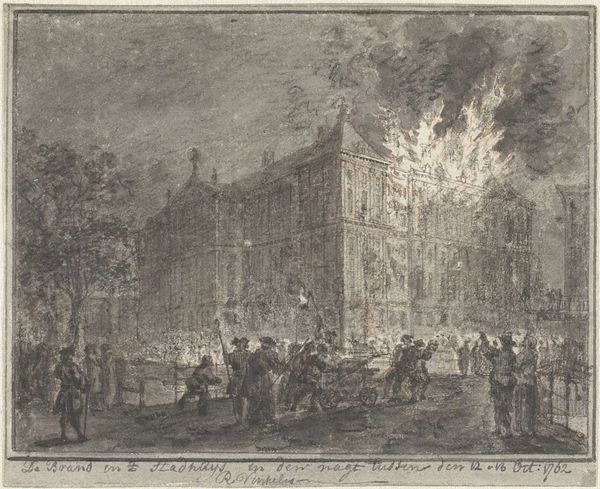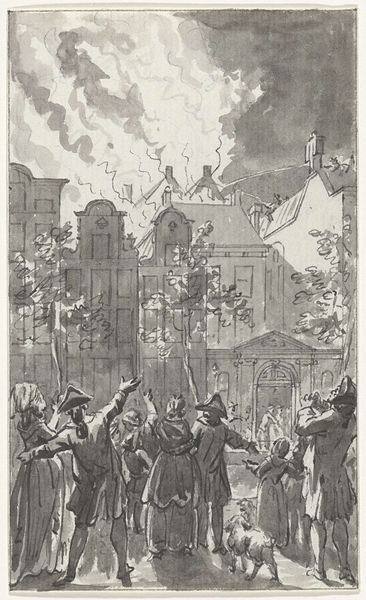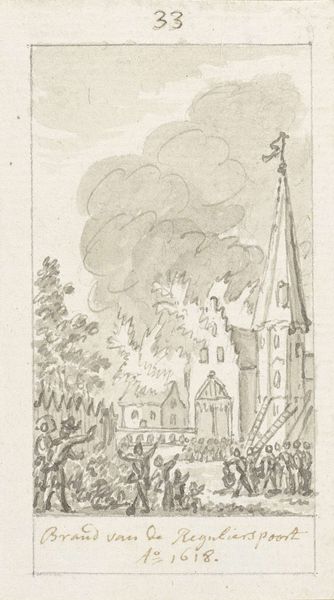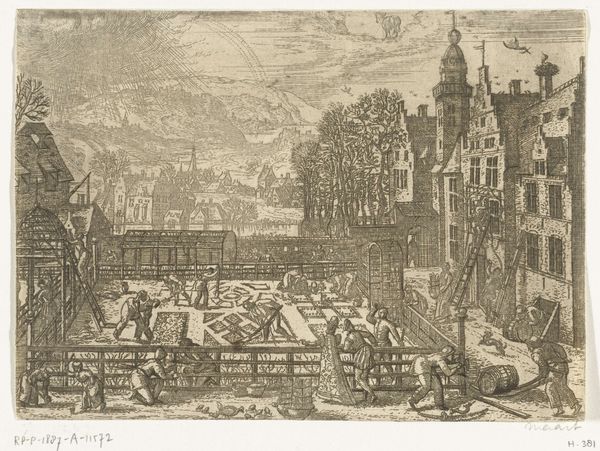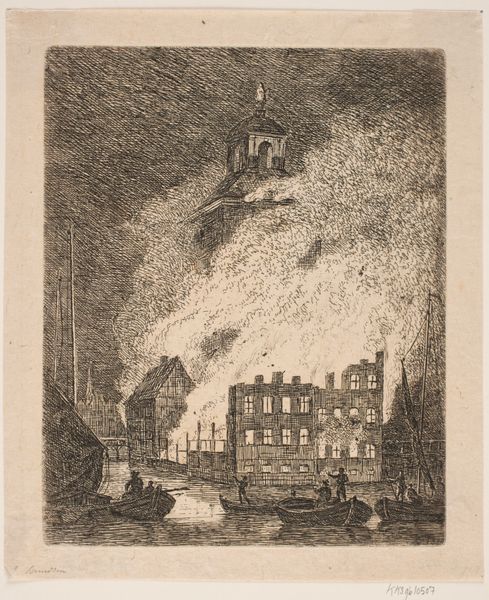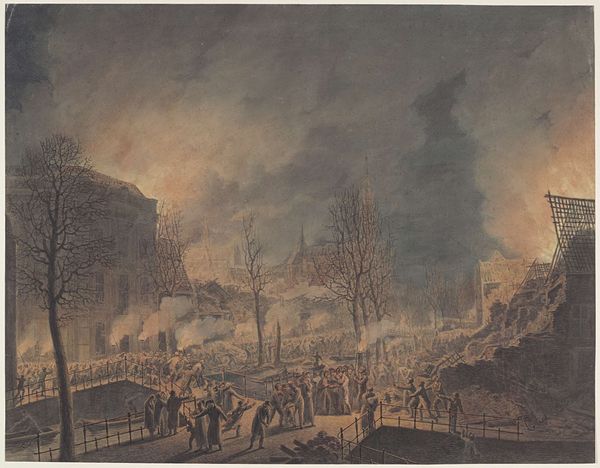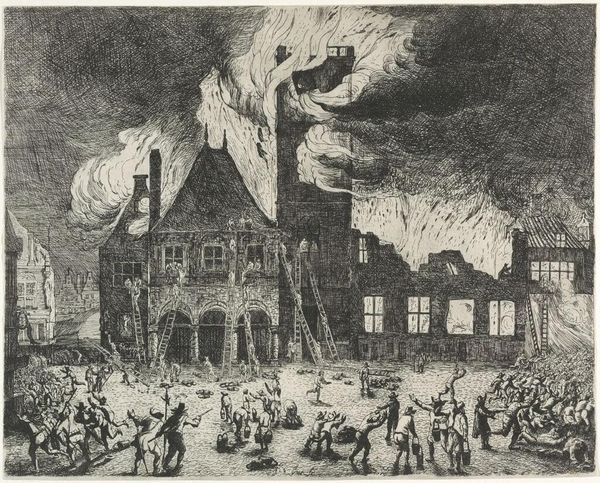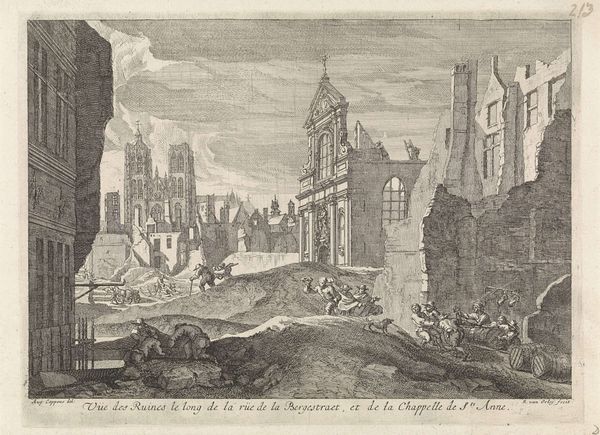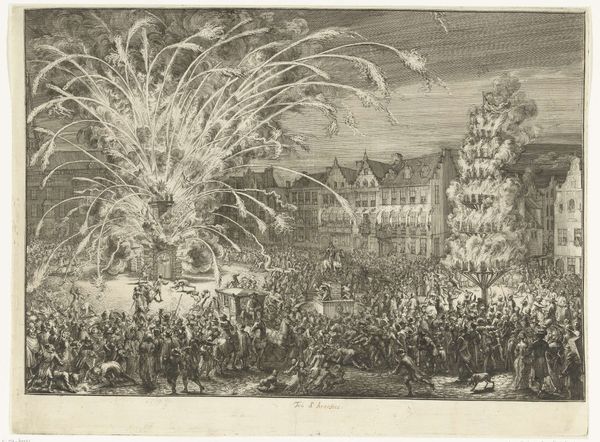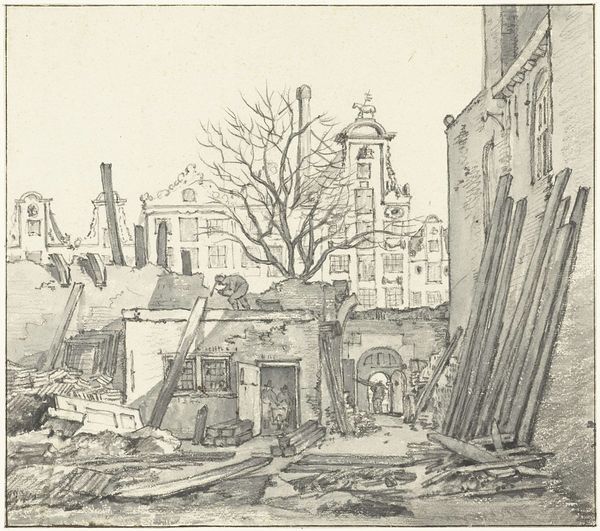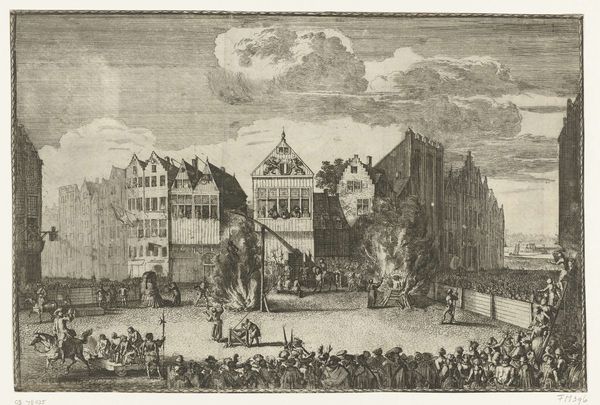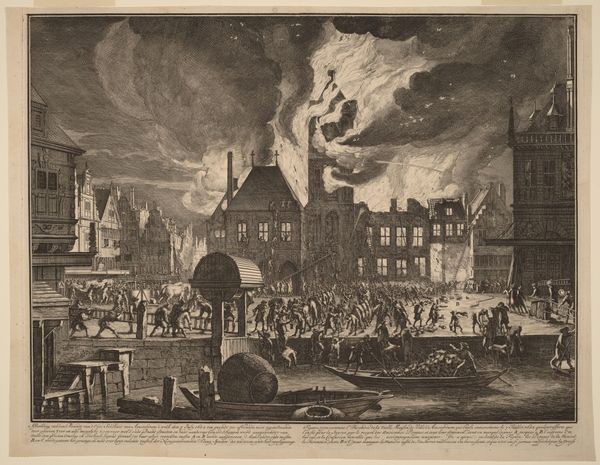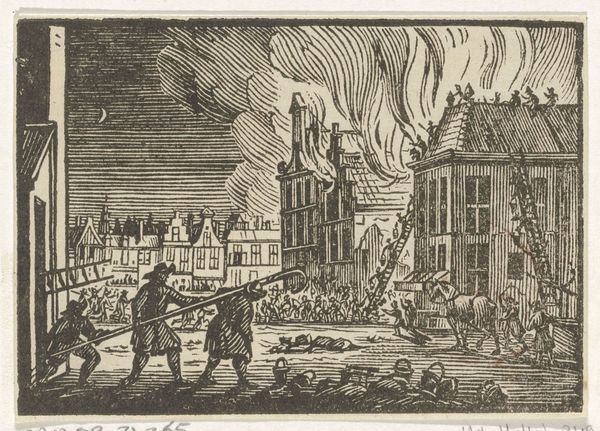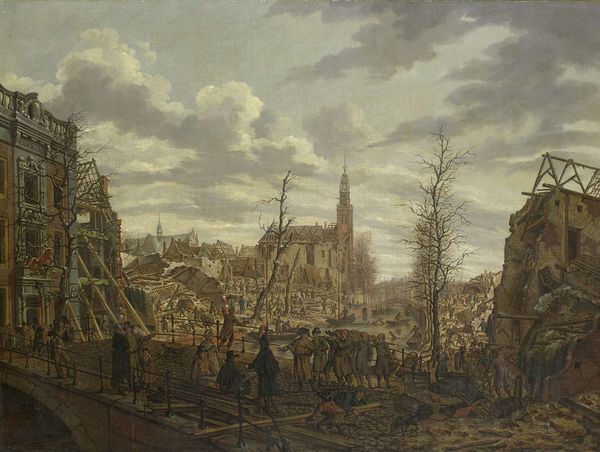
watercolor, architecture
#
landscape
#
watercolor
#
romanticism
#
architecture drawing
#
cityscape
#
watercolor
#
architecture
Dimensions: height 165 mm, width 201 mm
Copyright: Rijks Museum: Open Domain
Editor: We’re looking at Gerrit Lamberts' watercolor, "Burning of the Customs Houses at the Nieuwe Brug in Amsterdam," from 1813. There’s a real sense of chaotic energy. The architecture feels imposing, while in the center of the image, there’s a dynamic explosion. How would you interpret the story this piece is telling? Curator: This work, beyond its aesthetic qualities, offers a potent commentary on a specific historical moment and the public’s reaction to socio-political realities. Amsterdam in 1813 was a city chafing under French rule. What do you notice about the crowd in relation to the burning buildings? Editor: They seem… almost celebratory? There’s definitely no sense of panic that you’d expect with a fire. Curator: Precisely. The burning of the customs houses, symbols of French authority, becomes a public spectacle, an act of defiance. Lamberts is not simply recording an event; he’s documenting a collective sentiment. Notice how the architectural drawing, despite the event, takes prominence. Editor: I see it. The buildings around the burning customs houses are permanent, stable, representing Dutch identity. The fire is fleeting, a temporary disruption by a foreign power. Curator: Exactly! Lamberts’ choice of watercolor also contributes. Its relative ephemerality underscores the transient nature of political power, especially when compared to the enduring cultural landscape. How do you feel the museum space influences our interpretation? Editor: I suppose being displayed here gives this historical event a certain weight and permanence, making it a part of our shared cultural memory. I see now, it's more than just a depiction of a fire. It’s about public sentiment and power structures. Curator: Precisely! And seeing it now helps us reflect on the ongoing interplay between art, politics, and public perception.
Comments
No comments
Be the first to comment and join the conversation on the ultimate creative platform.
